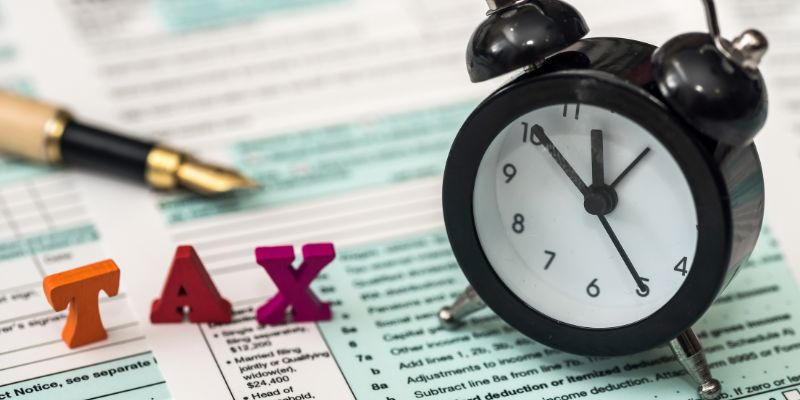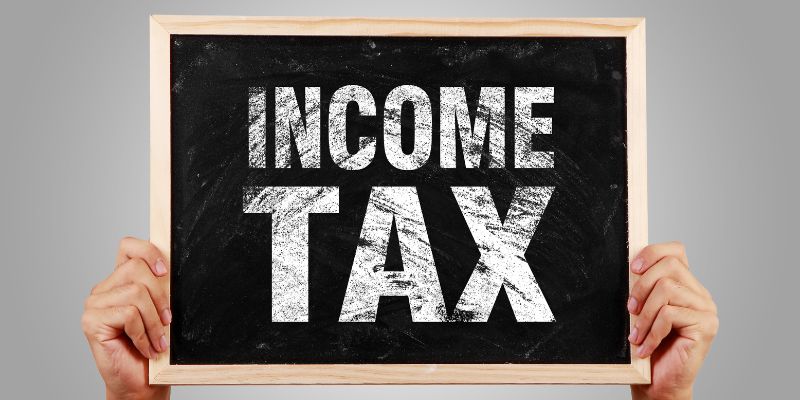Who Will Pay Illinois State Income Tax in 2024
Jan 13, 2024 By Susan Kelly
When it comes to the Illinois state income tax, less is more. With a flat tax rate of 4.95 percent, Illinois differs from the federal government and many other states because it doesn't use progressive tax bands, raising rates for people who make more money. Instead of having complicated tiered systems, Illinois's tax system is simple: all income levels pay the same amount.
The Illinois state income tax for 2022 was due on April 18, 2023, the same day as the federal tax. But the state gives people who can't meet the original date a lifeline: an automatic six-month delay to file. Still, it's important to remember that even if a taxpayer gets a delay, they still need to pay any taxes they owe by the regular filing date to avoid fines.

Individual Income Tax Rates in Illinois
The Illinois income tax system is based on a flat tax rate, which means that everyone pays the same amount of tax, no matter how much money they make. This rate is 4.95 percent of taxed salary as of 2024. Many states use a progressive tax system, which has different tax rates for people with different amounts of income. On the other hand, Illinois keeps things simple by applying the same tax rate to everyone.
Most of the money that Illinois people earn is taxed at a flat rate of 4.95 percent, but the state may not tax some income. For example, certain types of retirement income or income from sources like Social Security checks might not be taxed. On the other hand, the Illinois Department of Revenue makes it hard to determine which kinds of income are taxed and which are not. So, people are strongly encouraged to get help from a trained tax professional or look at the state's legal rules to understand how much of their income is taxed.

Illinois State Income Tax Brackets And Tax Rates
Illinois's system doesn't have complicated tax levels for taxing income. No matter how much money you have that is subject to Illinois income tax—a dollar or a billion dollars—you still owe the state 4.95% of that amount. Yet, even though Illinois has a flat tax, several tax-saving programs can change your final tax bill.
People with different amounts of money and situations can use these tools uniquely. Knowing and using these choices might greatly affect your final tax bill. You can save money and qualify for these helpful programs depending on your finances.
How it Will Affect Different Income Groups
Illinois's people have positive and negative feelings about the flat tax rate. Some support a flat tax system because it makes things easier for taxpayers and the state regarding management and tax figures. Flat taxes are often criticized because they unfairly hurt people with lower incomes by applying the same tax rate to everyone.
While better earners are taxed at higher rates under a progressive tax system, people with lower incomes may feel the effects of a flat tax, which is a tax that doesn't change based on income. Many people who are against the scheme say it could worsen income inequality in the state. There have been talks and suggestions in recent years to make Illinois's tax system more progressive, with higher wages being taxed at higher rates. However, the state will still have a flat tax system as of 2024.
Who Pays Illinois State Income Tax?
You must consider several situations to decide whether to pay Illinois state income tax. If you live in Illinois and are required to file a federal tax return, you must also file an Illinois state tax return. In the same way, if you live in Illinois and don't have to file a federal tax return but make more than the exemption amount, you must file a state tax return. People who don't live in Illinois but made a certain amount of money from an Illinois source during the tax year are also taxed. Furthermore, if you stayed in Illinois for a portion of the year and made money during that time, you must pay your state taxes.
Illinois has tax deals with Iowa, Kentucky, Michigan, and Wisconsin, all of which are close by states. Because of these deals, these states don't pay Illinois people who work in their states. On the other hand, people from these states who work in Illinois usually don't have to file state income tax returns unless they made certain types of Illinois non-wage income, like winning the lottery. Understanding these factors and interstate deals is important for figuring out your Illinois state income tax responsibilities and ensuring you follow the state's tax rules based on where you live and how much money you make.
Illinois State Income Tax Deductions And Credits
Illinois's Earned Income Tax Credit (EITC) works like the federal EITC: it helps people with low to middle wages. Since it is a refundable tax credit, it lowers your tax bill by the same amount, and you might even get your money back. To get the Illinois EITC, you must meet many of the same requirements as the federal program. The credit amount is based on your federal status. For example, for tax years 2022 and later, the Illinois EITC will make up 18% of the federal credit. From 2023 on, it will rise to 20%. Taxpayers should check the IRS's rules to see if they meet the requirements, which usually include working and making less than $59,187 annually.
The Illinois K–12 Education Expense Credit gives more tax help by lowering tax bills by up to $750 if qualified school costs are more than $250. These costs include lab fees, tuition, and book rent. However, costs for babysitting, preschool, or college are not covered. There are income limits for the credit. Taxpayers with more than $250,000 in federal adjusted gross income (or $500,000 for joint filers) cannot get it. Illinois doesn't follow the federal rules regarding basic or itemized exemptions. In its place, it lets certain costs be taken from taxed income. It includes money put into college savings, ABLE funds, and money earned from state or local bonds that are not taxed.
Conclusion:
In conclusion, Illinois's income tax rate, which doesn't have any tax bands, makes the state's tax system easier to understand but makes people worry about whether it is fair for people of all income levels. To save money on taxes, you must know about tax credits like the EITC and benefits like the K-12 Education Expense Credit. The state's tax system has stayed the same despite discussing making it more fair. It means that people must understand interstate deals and look into all the tax-saving options that are open to them based on their income and situation.

Everything You Need To Know About Nonlinear Regression
When comparing nonlinear regression modeling to linear regression, both aim to visually represent a response from a set of variables. Read more about how to calculate them.
Jan 05, 2024 Triston Martin

Most-Favored Nations Clause: Principles of Equal Treatment and Application
Mutual trade concessions are not required for MFN status; these nations are not compelled to cut their tariffs in exchange. Read more about the most favored nations clause.
Jan 04, 2024 Susan Kelly

Why Agritech Stocks are a Wise Investment Choice Today
Learn the untapped potential of Agritech stocks and why they are a wise investment for the future. Also, get an insight into the top stocks that elevate your portfolio.
Jan 19, 2024 Susan Kelly

Climate First Bank Review 2024
Climate First Bank looks at environmental-friendly banking choices, accounts for everyone, and connects money with social duty
Jan 13, 2024 Susan Kelly

Decoding the Real Worth of Farmers Homeowners Insurance: A Thorough Review
Get an in-depth look into Farmers Homeowners Insurance, its comprehensive coverage options, personalized service, and more. Find out if it's the right choice for you.
Jan 16, 2024 Susan Kelly

Accessing Your Tax History: How to Get Copies of Past Tax Returns
This comprehensive guide provides step-by-step instructions on accessing past tax returns, emphasizing their importance for financial decisions and resolving IRS issues.
Jan 18, 2024 Triston Martin